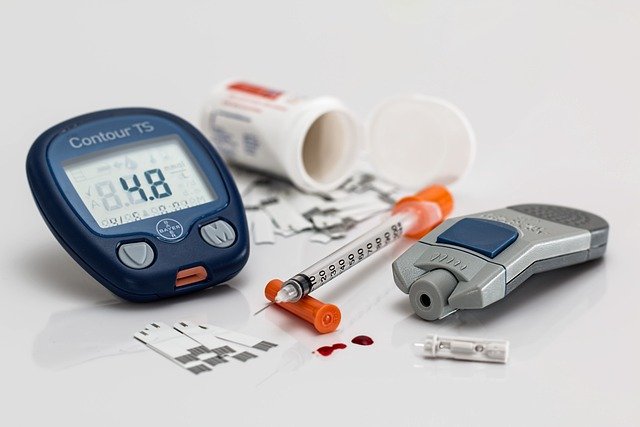7 Common Complications of Diabetes
Living with diabetes requires careful management to prevent complications that can arise from the condition. Diabetes affects various parts of the body and can lead to several complications if left uncontrolled. Furthermore, understanding these complications is essential for individuals with diabetes to prioritize their health and take proactive measures. In this article, we will explore the ten most common complications of diabetes and discuss their potential impact.
Common Complications of Diabetes
Here are the common complications of diabetes and the challenges they pose for individuals with this condition.
-
Diabetic Retinopathy (Eye Damage)
Diabetic retinopathy affects the eyes. High blood sugar levels can damage the blood vessels in the retina, leading to vision problems and, if left untreated, potential blindness. Regular eye examinations and managing blood sugar levels are vital to prevent or slow down the progression of diabetic retinopathy.
-
Heart Disease
Diabetes significantly increases the risk of developing heart disease. Individuals with diabetes are prone to high blood pressure, high cholesterol levels, and obesity, which contribute to cardiovascular issues. Maintaining a healthy lifestyle, including regular exercise, a balanced diet, and proper medication, can help reduce the risk of heart disease.
-
Diabetic Nephropathy (Kidney Disease)
Diabetic nephropathy, or kidney disease, occurs when high blood sugar levels damage the kidneys’ blood vessels. Over time, this can lead to kidney failure. Controlling blood sugar levels, managing blood pressure, and regularly monitoring kidney function through urine and blood tests are crucial for preventing and managing diabetic nephropathy.
-
Dental Problems
People with diabetes face a higher risk of dental and oral health problems. Uncontrolled diabetes impairs white blood cells, the body’s main defense against mouth infections. Over time, untreated plaque can result in tooth decay, gum disease (gingivitis), periodontitis, and tooth loss. Individuals with diabetes should be vigilant for signs of gum problems and seek proper gum disease treatment. This may involve professional dental cleanings, scaling and root planing, and, in severe cases, surgical interventions. Maintaining good oral hygiene, including regular brushing, flossing, and rinsing with antiseptic mouthwash, is essential for preventing serious dental issues.
-
Diabetic Neuropathy (Nerve Damage)
Diabetic neuropathy is a nerve damage caused by higher sugar levels in our blood. This condition commonly affects the feet and legs, leading to symptoms like numbness, tingling, and pain. Managing blood sugar levels, regular exercise, and proper foot care are vital in preventing or managing diabetic neuropathy.
-
Foot Problems
Foot problems are a significant concern for individuals with diabetes. Nerve damage and poor circulation can cause foot ulcers, infections, and in severe cases, it leads to amputation. Regular foot inspections, proper foot hygiene, wearing appropriate footwear, and seeking immediate medical attention for any foot issues are essential for preventing complications.
-
Skin Problems
Diabetes can lead to various skin problems, including dry skin, fungal infections, bacterial infections, and slow wound healing. Maintaining proper blood sugar control, keeping the skin clean and moisturized, and promptly treating any skin infections or wounds can help prevent and manage these issues.
Conclusion
Managing diabetes goes beyond controlling blood sugar levels. Understanding the common complications associated with diabetes is crucial for individuals living with this condition. By adopting a proactive approach, including regular medical check-ups, a healthy lifestyle, and timely interventions, it is possible to minimize the risk and impact of these complications. Remember, proper self-care and adherence to medical advice are key to preventing and managing the common.







